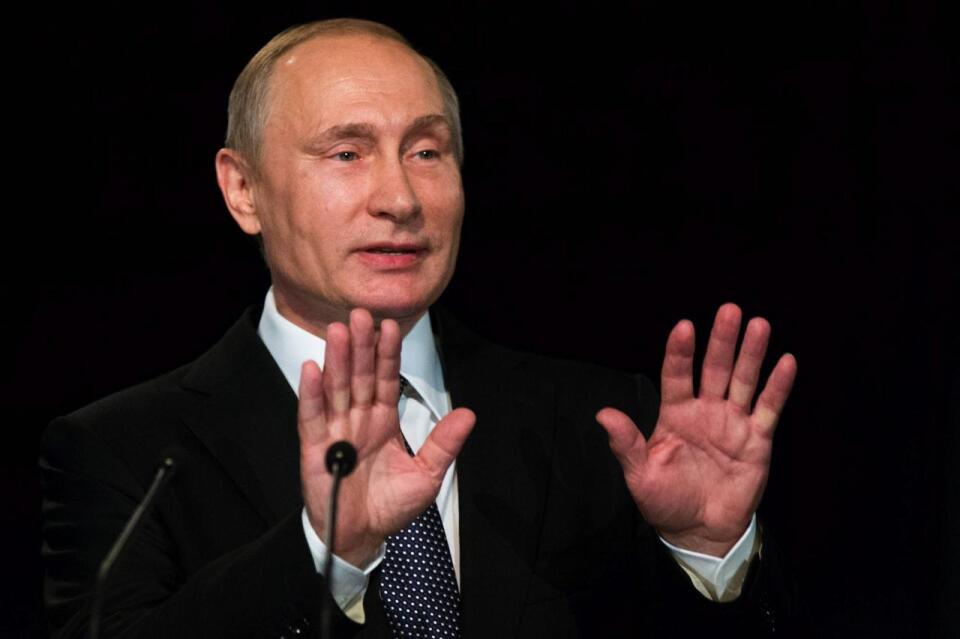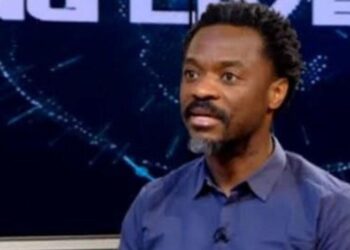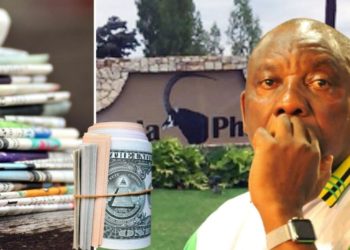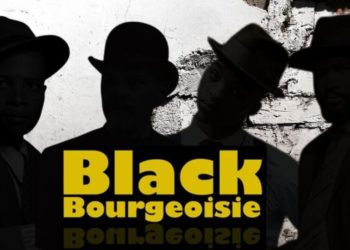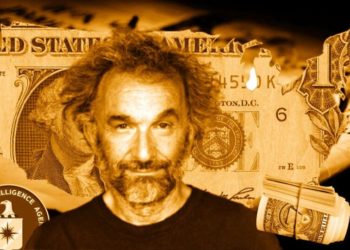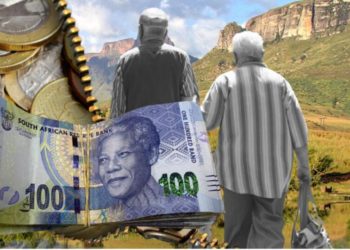It was a call to catch on many things since we last spoke in the early days of the coronavirus outbreak and its subsequent lockdowns. Inevitably, we were always going to talk about topical issues in the world. After all, there is no chat between contemporaries that would not veer into international politics and other events in the world.
It was a call to catch on many things since we last spoke in the early days of the coronavirus outbreak and its subsequent lockdowns. Inevitably, we were always going to talk about topical issues in the world. After all, there is no chat between contemporaries that would not veer into international politics and other events in the world.
Putin’s work: ‘Civilised nations’ suddenly feel vulnerable
Siyabonga Hadebe
On Friday afternoon, I had a long call with a diplomatic friend from one of the European states. It was a call to catch on many things since we last spoke in the early days of the coronavirus outbreak and its subsequent lockdowns. Inevitably, we were always going to talk about topical issues in the world. After all, there is no chat between contemporaries that would not veer into international politics and other events in the world.
My friend, l shall call him Ivtar Cœptid (not his real name), told me that he had just come out of a very lengthy meeting of European diplomats. This emergency meeting was organized to discuss the political developments in Ukraine and South Africa’s response, which they considered lame.
Ivtar condescendingly started the topic on Russia, the aggressor, and how South Africa is driven by outdated political ideologies. “South Africa is losing out in becoming a leader in Africa…I don’t know if you saw the Kenyan ambassador rebuking Russia in a security council meeting?” He continued to say that South Africa should have come down hard on Vladimir Putin and Russians.
The feeling is that Pretoria is rather soft on Russia due to historical links and present friendship with Moscow. As a “beacon of hope and human rights”, South Africa should have therefore issued a stronger statement to criticize Russia for breaching the sovereign borders of another state. This is considered a brazen violation of international law and its principles.
This is not the first time South Africa is dragged into situations that demand sophistication and diplomacy, but it is asked to bark orders at other states as if Russia will ever be bothered.
In the nineteen nineties, Nelson Mandela once fell for the trap and screamed at Nigeria after Abuja had captured playwright and activist Ken Saro-Wiwa. To spite him, the Sani Abacha regime executed Saro-Wiwa and the diplomatic relations between the two African powers reached an all-time low. That situation took a while to mend it, and South Africa rightfully refrains from engaging in politically charged matters.
Ivtar’s concerns were loud and clear as I conceded to him, but I was quick to remind him that Russia was not acting in an unusual manner. I reminded him that we have grown accustomed to; what Australian academic Ntina Tzouvala calls “civilization” of non-whites in the world. This relates to “the distribution of rights and duties amongst different communities”, and this concerns “how the very foundations of international law rest on a divide between Europe and the rest, rooted in conceptions of racial and cultural superiority”.
As we continue to stress, I retorted, have we considered how similar events affected millions of people and brushed the subversions aside because they were very far from us? My friend looked slightly puzzled and was unsure what to say, but l had to break down what l said in much simpler language to ease his tension.
First, l had to relieve him of his stress of convenience coming from his frustrations from Russia’s actions in Europe. Second, l inducted him to alternative way of seeing the world from a perspective of nobodies (“savages” and “pagans”) whose views generally do not matter in discussions about world events, and modernity where only the word of Civilized Christians counts.
My views regarding the unfolding events in Ukraine are that loss of life and destruction are not acceptable irrespective where they are taking place. What we often see is that human bias always determines how we react to such situations rather than looking at them without tainted glasses.
Pain of the Congolese shouldn’t be seen as normal whereas the suffering of Ukrainians is amplified to a point that we cannot be rational and objective. As such, my interpretation of the Russia-Ukraine situation is that it is being taken out of context while we have seen similar unfortunate occurrences before, but they resulted in indifference and sometimes support especially among the ‘civilised’ or ‘democratic’ citizens of the world.
When Britain and the US decided to invade Iraq, Syria and then Libya under false pretences which are usually capped as “promoting democracy”, “ensuring the rule of law” and “protecting vulnerable people from aggression by a state”, there was little or no condemnation. In simple terms, these phrases are about toppling governments and replacing them with friendly regimes and puppets, see the 2014 Orange Revolution in Ukraine (another name for a coup d’état).
The modus operandi is to ensure the expansion of Western political sphere of influence and value systems while making economic gains at the same time. The simultaneous expansions of both NATO and the EU could be responsible for the Russia-Ukraine crisis, as per University of Chicago political scientist John Mearsheimer.
In any manner, these Britain and the US have been boldly policing the world and claiming to be reinforcing adherence to international law and human rights. In the end, they have caused irreparable devastation, harm and despair. Later they would organize international conferences to “rebuild” Iraq.
European countries usually tagged along since there was a lot of money to be made from destruction.
These countries understood that their citizens would benefit as employees of the UN and its agencies as well as of a litany of NGOs and missions that would provide “humanitarian assistance, relief and aid”. In addition,
their attitudes were largely framed by their superiority as saviours who saw conflict as distant and a problem of the least “civilized”.
Things started to change in recent years when thousands of people started to flock Europe in large numbers as refugees. But even then, several states deviated from their rule book of democracy, human rights, neo- liberalism and saving life. They not only closed their borders, but they resorted to hostility and anti- immigration.
Anti-refugee sentiments underline political events across Europe, and are often targeted at ‘others’ – non- whites, communists, Muslims, non-Christians and the rest. This is in contrast to Poland’s decision to welcome fleeing Ukrainians with open arms. Mindful that Poland has been one country that generally took an extreme stance on migration.
Nonetheless, the EU concluded agreements with states like Morocco, Turkey, Libya and Belarus to serve as initial blockade of migrants to prevent them member states. Brussels was not bothered how these “partner” countries carried out this task for as long as no people entered the EU space. Luna Vives and Lyubov Zhyznomirska observe that this strategy is about urging governments to “keep prioritizing the protection of borders over the protection of human rights”.
Furthermore, these collaborations often come with additional development aid, preferential commercial and trade relations with the EU and relaxed visa restrictions for their citizens. The EU promotes these agreements with non-member states as far as Niger “on the assumption that migrant arrivals will eventually diminish if controls extend to countries of origin and transit”.
This showed how the Europeans are mostly consumed in their image as a “civilized” people who never saw themselves as the same as other population groups. They inherently look down on others.
Before Ukraine, in places like Munich, London and Zurich war was seen as a problem of others and not of European countries, who without fail side with the US in security council, general assembly and other meetings like in human rights or trade discussions to bully the world to do things their way.
International affairs and diplomacy have been about the Western bloc barking orders to others and literally insulting them when the opportunity for negotiation arose. This bloc has generally taken extreme positions on UN reform, trade liberalization, “climate change”, racism, Israel-Palestine conflict, and many other discussions that could have allowed the better governance of the world.
The situation was advantageous because they maintained the superior position and placed themselves as the voices of reason and final arbiters in almost all issues. They could do this after creating rules of engagement, also called international law, that favoured them.
They used international law to maintain their stranglehold over former colonies and others; they amassed the resources and wealth without due consideration of others. There was disregard that the planet was shared among all the people who lived in it.
As the Putin onslaught continues, there is consensus among many who view the world as neutral and not afflicted with biases that Russia has violated international law, norms and standards. The failed attempt to pass a resolution in the UNSC is just but one example. And the conventional wisdom of international law experts, lawyers and diplomats is that “there is no question Russia has breached the rules of international law. Ukraine has a right to territorial integrity and political independence.”
In this regard, the US foreign secretary Antony Blinken opined on Twitter that “Russia’s premeditated, unprovoked, and unjustified attack on Ukraine blatantly disregards the lives of innocent men, women, and children, Ukraine’s sovereignty and territorial integrity, and international law. My thoughts are with all Ukrainians.” This is rich coming from a state that has been directly or indirectly involved in manslaughter in Syria and Libya.
Russia is said to have contravened the UN Charter and there is a recommendation that the UNSC must act against Moscow and its leadership. Academics Juliette McIntyre, Douglas Guilfoyle and Tamsin Phillipa Paige explain the contradiction about both the UN Security Council and the UN Charter which were established by the allied powers who “won” the second world war. In establishing the UN, they argue, China, France, the UK, the US and Russia (as successor state to the USSR) “were positioned functionally above the law”. Already the resolution has crumbled after Russia vetoed it.
Russia, therefore, has not done anything out of the “ordinary” to have the Europeans and other Westerners enraged. But my view is that the current polarization denies the world to deal with the merits of what is going, rather than taking sides. Two wrongs do not make a right, that is my point of departure. Therefore, the current event is a crisis that shouldn’t be wasted if were thinking straight: the UN reforms and the undemocratic nature of the international system should be opened for discussion once more. The point here is that it is futile to criticise Putin when the system that powers his arsenal remains unchanged.
This suggestion is unacceptable to people who are used to nobility and elitism – they cannot imagine an equal world where there are no “civilised” and “others” in the same space. When the lopsided rules of international law worked in favour of West Europeans and neo-Europeans, they accepted the situation as de facto and obstructed debate, let alone the castigation of perpetual aggressors in the US and the UK. They never questioned the actions of France in Africa, despite the mess they left behind especially toppled governments.
The actions of Europeans and their friends were condoned since they were seen to bring the pork barrel home. Also, mostly non-whites were affected which means that the entire scheme was viewed as natural, and therefore not challengeable.
McIntyre, et.al suggest that “Russia’s ongoing transgression of the law is not the end of the story”. Among others, they propose the invocation of Article 51 of the UN Charter, which gives states the right of individual and collective self-defence. They add the possibility of prosecution of Putin and others by domestic courts
(using “universal jurisdiction” laws for war crimes) and the International Criminal Court (ICC). The US itself has resisted acceding to the Rome Statutes in fear of prosecution of its leaders.
Both George W Bush and Barack Obama are free men after their respective invasions in Iraq and Libya. Again, the point that must be stressed is that superpowers do not subject themselves to anything that would limit their power. Therefore, singling out Putin and his foreign minister Sergey Lavrov in terms of prosecution and or targeted economic sanctions is not likely to succeed. Russia is not Zimbabwe or Serbia but a superpower like the United States – it is a dream that he can be arrested or prosecuted in The Hague.
The essence of this write up is that there could be a chance to transform international law and its institutions. But what is of critical importance is to also look at the legal interpretation of rules to ensure their uniformity in terms of application and sanctions. Whereas both Russia and the US are responsible for the same offense, they are seen to deserve different punishments. Political power will however frustrate change unless Westerners feel they are on the back foot after Putin has thrown the game of political power relations at them.
Therefore, it doesn’t matter how one feels about Putin and Russia in the bigger scheme; the attack on Ukraine or Georgia still comes a distant second to other transgressions that the world has witnessed in the past five centuries. In all those invasions non-whites and ‘other’ have borne the brunt. For the first time since Western Europeans ventured abroad in the 15th century have never felt as vulnerable as they are now. Putin’s works in Ukraine is just a quick reminder to the triumphant Westerners how it actual feels to be non-white and powerless. The international law they created which they have used to decimate others is exactly what it is, a myth and an impotent weapon in real terms. International law has not saved anyone in the developing world.
In this regard, Tzouvala argues that international law incorporates and attempts to “mediate the contradictions of capitalism as a global system of production and exchange that both homogenises and stratifies societies, populations and space”. The Europeans have been happy and comfortable all along as they perpetuated divisions and primitive accumulation using international law. Conversely put, international law has not delivered justice for the subalterns and underclasses of the world.
Suddenly, the loudest cries about Russia attacking “civilized” whites is to be expected since a person from ‘other’ has taken a centre stage in world politics and displaces Western power. The next catastrophe to face Western nations will be a decline in economic fortunes which have always been tied to imperialism and use of force. Without invasions that begun with slavery, colonialism and apartheid, occupations, regime change and other forms of subversion, it is doubtful that the West would be “developed”.
Putin’s work means a non-civilised nation wields power using the international law instruments of the West to frustrate as well as to wrestle power from the civilised Christians. Hence the panic!


